Calls
In this section we share information from various institutions on calls for proposals, scholarships and support programmes for researchers, teachers, students, activists and human rights defenders at risk in different countries.
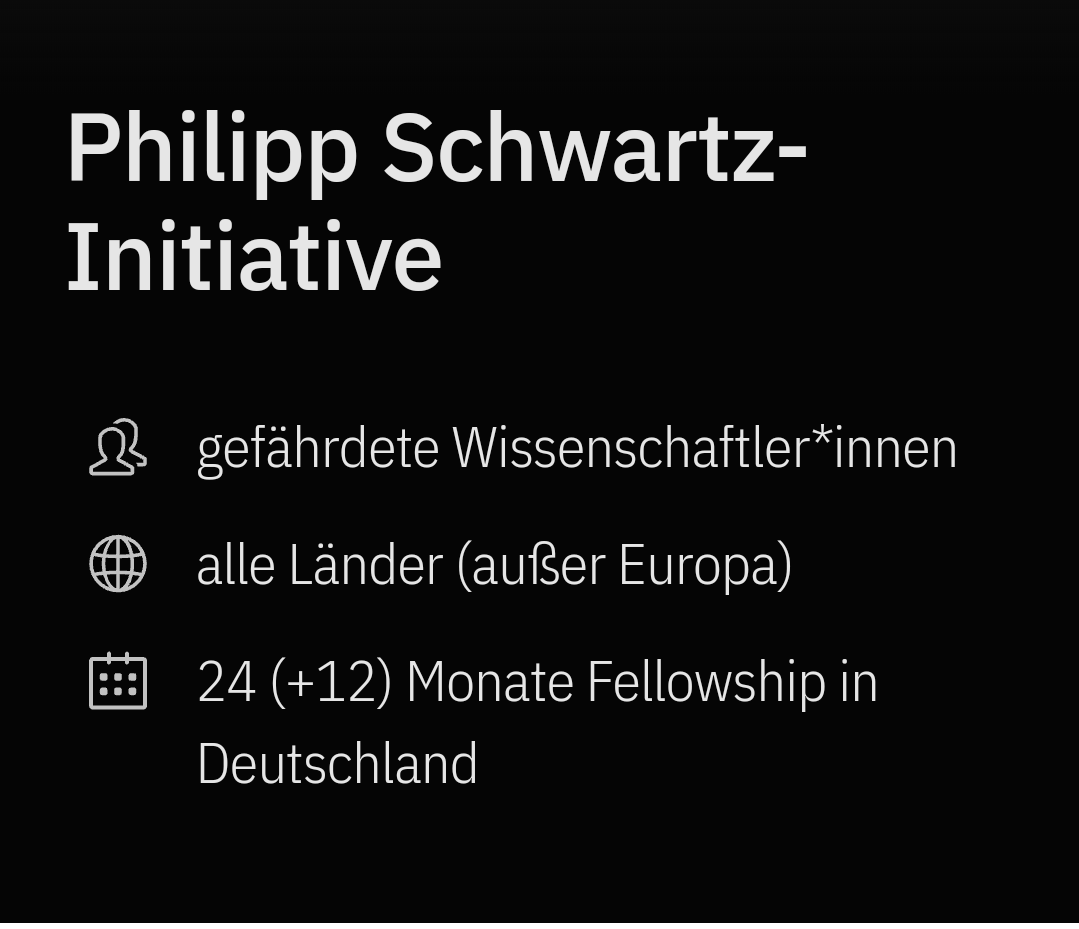
XIV Call for applications for Philipp Schwartz Initiative grants in Germany
Institution: Philipp Schwartz Initiative (PSI)
Closing date: 16 February, 2024
Languages of the call: English and German
Overview:
The Philipp Schwartz Initiative (PSI) closes its XIV call for applications for grants on 12 February, 2024. The Initiative offers funding to universities and research institutions in Germany so that they may host researchers at risk. PSI funding consists of two components: a) Funding for a research fellowship or work contract with a maximum duration of up to 24 months, b) Funding for the host institution.
Up to 25 scholarships will be funded. Announcement of the selection results is expected by the end of May 2024 and funding begins on July 1, 2024.

Call for papers: Dossier – Human rights and freedom of teaching, learning and research
Organizers: Amanda Mendonça (Faculty of Teacher Training – FFP / UERJ, São Gonçalo, Brazil) and Rosario Figari Layús (Justus-Liebig University of Giessen, Germany)
Closing date: 29 February, 2024
Languages of the call: English, Portuguese and Spanish
Overview:
Attacks on the freedom to learn and teach, on the one hand, in basic and higher education, and, on the other, to critically research fundamental issues, are increasingly frequent and have serious consequences for scholars, teachers and students and for society in general. While these repressive dynamics can occur in democratic contexts with relatively high human rights standards, this is exacerbated in contexts of political and economic crises, which result in the closure of spaces for action and expression in the field of teaching and research, and in strong social inequalities and/or armed conflicts that place academics and students in serious situations of risk and vulnerability in matters of academic freedom. In a current scenario marked by the advance of neoconservatism/ultraconservatism, anti-intellectualism and anti-scientific segments on a transnational scale, we have seen that many of these attacks – which take various forms, from stalking, aggression and harassment on networks or in public spaces to concrete physical threats and aggressions, including serious human rights violations – are carried out by state and non-state actors, including extremist groups, police and military forces, government authorities, political groups, among others. These attacks damage entire education systems, jeopardizing the quality of teaching and research.
The purpose of this special issue is to discuss the main challenges of teaching and research in this context of restriction and to contribute to reflections that can strengthen and deepen academic freedom, including the defense of the right to teach and learn at different levels of education (inclduing basic, secondary and higher educaiton), as well as to conduct essential research for scientific and social development. At the same time, this dossier invites reflection on how human rights norms, standards and good practices can become instruments for the defense of education and academic and research freedom, as they are fundamental pillars for the construction of more democratic societies.
Contributions will be accepted from different fields of knowledge that dialogue with the concern to defend the right to education and science, understanding academic freedom to teach, learn and research as a central element to guarantee this and other rights. Texts analyzing the multiple forms of violenceand attacks against scholars and educators in recent times and its impact on the field of education and scientific production in various transnational contexts are welcome. Contributions will be accepted in English, Portuguese and Spanish.
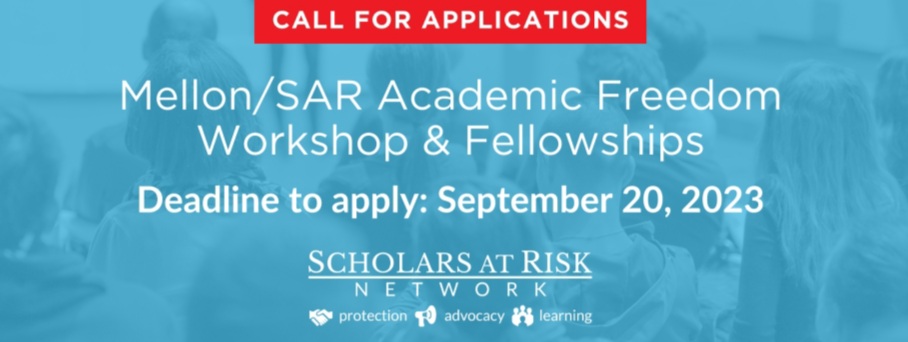
Call for Applications | 2023-24 Mellon/SAR Academic Freedom Fellowship
Institution: Scholars at Risk & Andrew W. Mellon Foundation
Closing date: 20 September, 2023
Languages of the call: English
Overview:
The organization Scholars at Risk (SAR) announces a call for applications for five remote research fellowships for early career researchers who investigate issues focusing upon academic freedom and/or related higher education values. The fellowship program, made possible by the generous support of and partnership with the Mellon Foundation, is intended to provide support for a professional community of researchers who wish to develop and share related work leading to the completion of a formal written publication, a new course offering, workshop, webinar or other significant end product.
Over the course of the 8-month program from November 2023 to June 2024, fellows will complete their proposed project and participate in monthly remote, online workshop sessions during which they will be asked to present the progress of their work and to offer feedback on the work of other fellows. During the latter part of the program, fellows will be expected to prepare and deliver an online talk or presentation of their work for SAR staff, network members, and/or guests (with appropriate security accommodations, as necessary). Fellows will receive a stipend of USD ~$8000 intended to cover research expenses, publication, or other costs, as the fellow may decide. In addition, participants will have the opportunity to gain exposure to SAR’s programming and to network with SAR partner-experts on academic freedom issues.
The deadline for submission is September 20, 2023, with decisions to be announced by November.
Criteria:
– PhD degree received less than 8 years ago; in limited cases, doctoral candidates in the final stages of dissertation completion may be considered.
– Current research or teaching affiliation with a higher education institution, association, or research organization.
– Demonstrated interest in teaching, researching, or publishing about issues of academic freedom or related higher education values.
– Preference for projects involving comparative, international, or collaborative work (fellowship awards may be split across two researchers).
– Commitment to participate in 8-10 remote, online workshops and/or public webinars with co-recipients, SAR staff, network members, and guests (with proper security accommodations).
– Ability to lawfully receive stipend funds and complete program requirements in the country of current location, assuming responsibility for tax or reporting requirements, if any.
– Personal experiences with risk or threat are not a consideration for selection, but current or formerly at-risk researchers are encouraged to apply.
– Candidates in or from the Global South and from marginalized communities are strongly encouraged to apply.
Questions or queries concerning this application may be submitted to scholarsatrisk@nyu.edu.
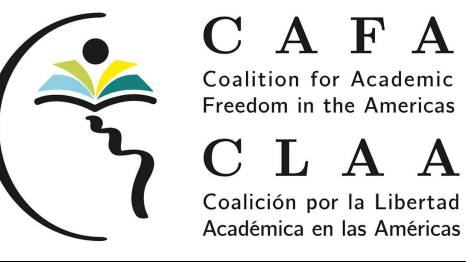
Call for Papers: 2nd Regional Conference on Academic Freedom in the Americas in Curitiba, Brazil
Institution: the Coalition for Academic Freedom in the Americas
Closing date: 15 June, 2023
Languages of the call: English/ Spanish/ Portuguese / French
Overview:
The second regional conference will focus on the promotion, protection and implementation of academic freedom and university autonomy in the Americas. This includes but it is not limited to coordinating/planning responses to attacks on higher education institutions, judicial actions to protect university spaces, as well as laws and policies implementing (or conversely, undermining) the Inter-American Principles and other human rights norms applicable to academic freedom and university autonomy.
The second regional conference of the Coalition will take place on 9-10 November 2023 at the
Pontifícia Universidade Católica do Paraná-PUCPR in Curitiba, Brazil. This conference will be hybrid,
combining in person and virtual presentations. Possible topics for papers may be around the following themes:
– Adoption of academic freedom policies or regulations by higher education institutions and
national or local government authorities.
– Implementation of the Inter-American Principles of Academic Freedom and University Autonomy.
– Academic freedom and the right to education in universities.
– University autonomy and authoritarianism in the Americas.
– Regional trends and challenges related to academic freedom or university autonomy.
– Conflicts between freedom of expression and academic freedom in the university space.
– Responding to sexual and/or gender-based violence and sexual harassment within the university space.
– Academic freedom and transitional justice.
– Participation of student activists or student unions or organizations in the promotion of academic freedom or university autonomy.
– Diversity and governance in higher education institutions.
– The impact of major information and technology corporations on academic freedom.
– Participation of marginalized groups in higher education institutions, including governance bodies.
– Universities and the right to social protest.
– Regional or country-focused studies on issues related to academic freedom or university autonomy.
There will be two types of contributions. Scientific papers aiming to be part of a scientific publication; and presentations aiming to be presented at the conference. Interested parties must submit a scientific or a conference paper proposal.
Interested parties should send an abstract by 15 June 2023. Whether it’s a scientific paper or a
conference paper, each abstract should be accompanied by a 100-word personal bio, includin contact information and professional affiliation. Individuals whose abstracts are selected will be notified by 15 July 2023. The Coalition accepts proposals in English, Spanish, Portuguese, and French.
Abstracts to be submitted to Rafael Ibarra Garza, professor at the University of Monterrey and member of the Coalition for Academic Freedom in the Americas, to the following e-mail: rafael.ibarra@udem.edu
Some financial assistance to attend the conference might be provided to those that submit
paper proposals approved by the editorial committe.
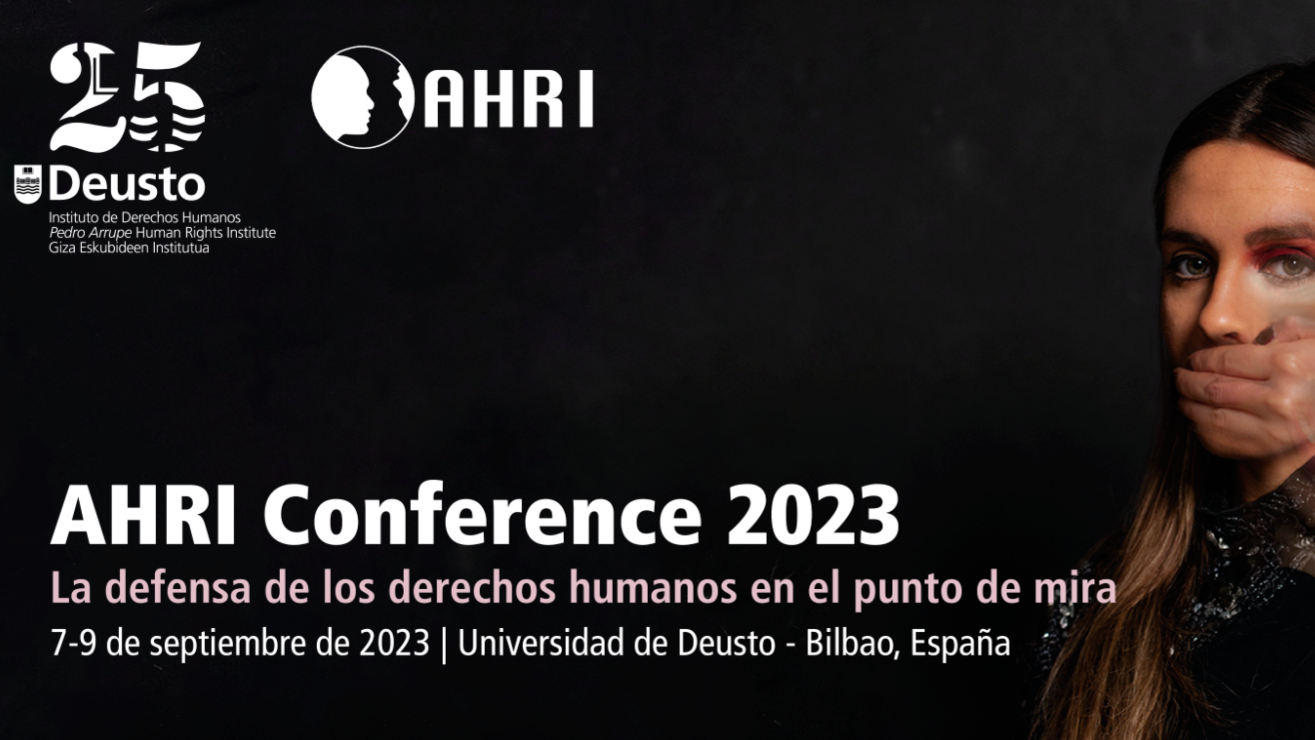
Grants for human rights defenders from the global south for the conference “Human Rights Defenders under Siege”
Institution: Deusto University
Closing date: 20 June, 2023
Languages of the call: English/ Spanish
Overview:
A limited number of grants will be offered to human rights defenders from the Global South who may be interested in participating in the conference. These grants are intended to cover accommodation and registration fees at the AHRI Conference 2023.
Those interested should send an email requesting the grant to ahri2023@deusto.es by 20 June 2023, attaching a brief CV. Applications without this document will not be considered for a grant.
Following assessment of the submitted applications by the Scientific Committee, recipients will receive a confirmation email by 1 July 2023 with instructions on how to register for the AHRI Conference 2023 and further details relating to the grant.
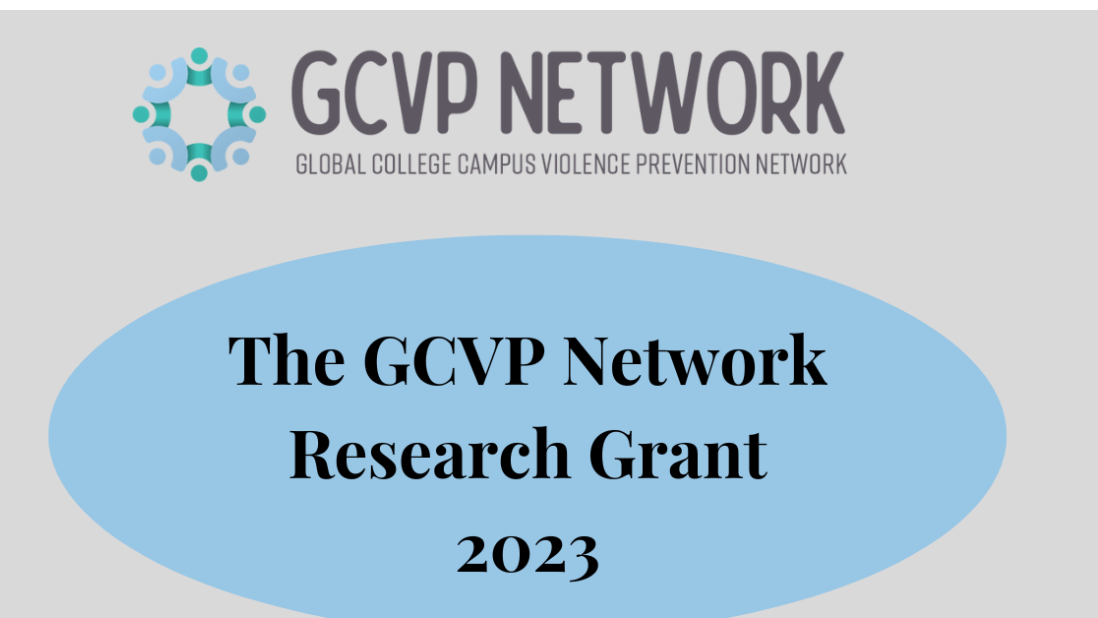
Grants to conduct research on gender based violence and prevention on university campuses in the global south
Institution: Global College Campus Violence Prevention Network
Closing date: 16 June, 2023
Languages of the call: English
Overview:
Funding is available to researchers at institutions of higher education (IHE) in the Global South to conduct violence prevention research on their college or university campus(es). Early career applicants are strongly encouraged to apply. The Global College Campus Violence Prevention Network (CGVP Network) will support grantees at levels of $35,000 – $50,000 USD for 18-24 months of funding for research to 1) assess the scope, determinants and consequences of campus-based sexual assault, harassment, stalking, dating violence and other forms of gender-based violence, and 2) design, improve and evaluate policies, programs, and resources to prevent and respond to violence.
KEY DATES
16 June 2023: Deadline for submission of Letters of Interest (LOI)
03 July 2023: Full proposals will be requested from a subset of LOIs received
28 Aug 2023: Deadline for submission of full proposals
14 Sept 2023: Awardees announced
1 Nov 2023: Grant start date
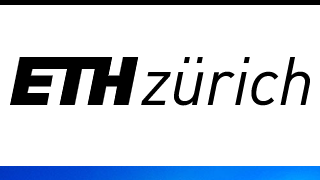
Fellowships for scholars at risk at the Collegium Helveticum in Switzerland
Institution: Collegium Helveticum &Scholars at Risk
Closing date: until all three positions are filled
Languages of the call: English
Overview:
In 2023, the Collegium Helveticum in Zurich will host three fully funded Scholars at Risk fellows for up to six months.
The fellowships are open to researchers from all disciplines based at ETH Zurich, the University of Zurich (UZH) and the Zurich University of the Arts (ZHdK).
The fellowships are intended for scholars who face an immediate political threat. They can be university professors, researchers or lecturers with a history of employment at an academic institution of higher education who face high levels of direct risk.
The Collegium Helveticum asks applicants to provide proof of their status as academics at risk by means of one of the following documents
– recognition as at-risk academicx by the SAR network
– recognition as an academic at risk by a Swiss university within the framework of the SNSF support actions for at-risk scholarship holders
– declaration of status with supporting documentation of an immediate threat
A brief letter of support from a member of one of the three above-mentioned faculties is required to apply for the scholarship. For any questions about this fellowship program in Zurich, please contact Mario Wimmer at wimmer@collegium.ethz.ch

Call for applications for scholars at risk in Central America at the University of Costa Rica
Institution: University of Costa Rica
Closing date: 12 December, 2022
Languages of the call: Spanish
Overview:
The Central American Campus for Academic Freedom, an instance created by the University of Costa Rica, makes the first call for professors and researchers who suffer political persecution to serve as part of the staff at the University of Costa Rica for a limited period of time.
The Central America Campus for Academic Freedom aims at scholars who have had to leave their countries of origin or suspend their academic activities due to threats against their physical integrity or that of their families.
The selected scholars will join the University of Costa Rica in March 2023.
The requirements to apply for the scholarship are:
a) Experience in university teaching or research at a Central American university during the last 10 years.
b) An academic master’s degree or doctorate in any field of knowledge.
c) Suffer from a situation of labor vulnerability, or be in a third country due to political persecution. Each applicant must provide a brief description of his or her labor or migratory status, as the case may be.
d) A curriculum vitae that allows to know the professional trajectory.
e) A brief work project, in a maximum of 200 words.
The results of the selection process will be announced on Friday, December 16, 2022.

XII Call for applications for Philipp Schwartz Initiative grants in Germany
Institution: Philipp Schwartz Initiative (PSI)
Closing date: 21 AOctober, 2022
Languages of the call: English & German
Overview:
The Philipp Schwartz Initiative (PSI) closes its XII call for applications for grants on 21 October , 2022. The Initiative offers funding to universities and research institutions in Germany so that they may host researchers at risk. PSI funding consists of two components: a) Funding for a research fellowship or work contract with a maximum duration of up to 24 months, b) Funding for the host institution (20,000 euros per funded person).
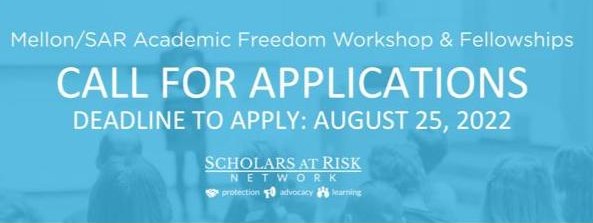
Call for Applications | 2022-23 Mellon/SAR Academic Freedom Fellowship
Institution: Scholars at Risk & Andrew W. Mellon
Closing date: 25 August, 2022
Languages of the call: English
Overview:
The organization Scholars at Risk (SAR) & the Andrew W. Mellon Foundation call for applications for five remote research fellowships for researchers who investigate issues focusing upon academic freedom and/or related higher education values. The fellowship program is intended to provide support for a professional community of researchers who wish to develop and share related work leading to the completion of a formal written publication, a new course offering, workshop, webinar or other significant end product.
Over the course of the eight-month program, from November 2022 to June 2023, fellows will complete their proposed project and participate in monthly remote, online workshop sessions during which they will be asked to present the progress of their work and to offer feedback on the work of other fellows. Fellows will receive a stipend of USD $8000 to cover research expenses, publication, or other costs, as the fellow may decide.

Call for Papers: 1st Regional Conference on Academic Freedom in the Americas
Institution: Coalition for Academic Freedom in the Americas, chaired by Scholars at Risk, the Human Rights Research and Education Centre of the University of Ottawa and the Universidad de Monterrey
Closing date: 31 August 2022
Languages of the call: English & Spanish
Overview:
In December 2020, the Inter-American Commission on Human Rights adopted the Inter-American Principles on Academic Freedom and University Autonomy. This marked a significant step towards the promotion and implementation of these rights by states and higher education institutions in the Americas. The Coalition seeks to contribute to this process by creating a network of academics, students, professionals, and civil servants interested in the development and protection of academic freedom.
Despite the growing recognition of the importance of academic freedom to free and democratic societies, human rights, and the dissemination of knowledge in the public space, higher education is under attack in the Americas. This includes the political control of higher education institutions in Mexico, Nicaragua or Venezuela; the use of administrative and criminal legislation to silence academics in Brazil or Colombia; and impunity regarding sexual violence in the university space throughout the hemisphere.
To foster discussion and collaboration, the Coalition is organizing its first Regional Conference on Academic Freedom, to take place in November 2022 at the Universidad de Monterrey, Mexico with both in-person and remote participation. This call for papers seeks contributions that highlight challenges and opportunities regarding the protection, promotion, litigation and good practices regarding academic freedom and university autonomy.
Interested parties should send an abstract, no longer than 300 words, until 31 August 2022. Each abstract should additionally have a 100-word personal bio, including contact information and professional affiliation. Selected abstracts will be notified by 15 September. A first draft is expected by 15 October, as a requirement to participate in the conference. Abstracts will be accepted in English, Spanish, Portuguese, and French.
Please send abstracts to Catalina Arango, member of the Coalition for Academic Freedom in the Americas, to the following e-mail: caran013@uottawa.ca
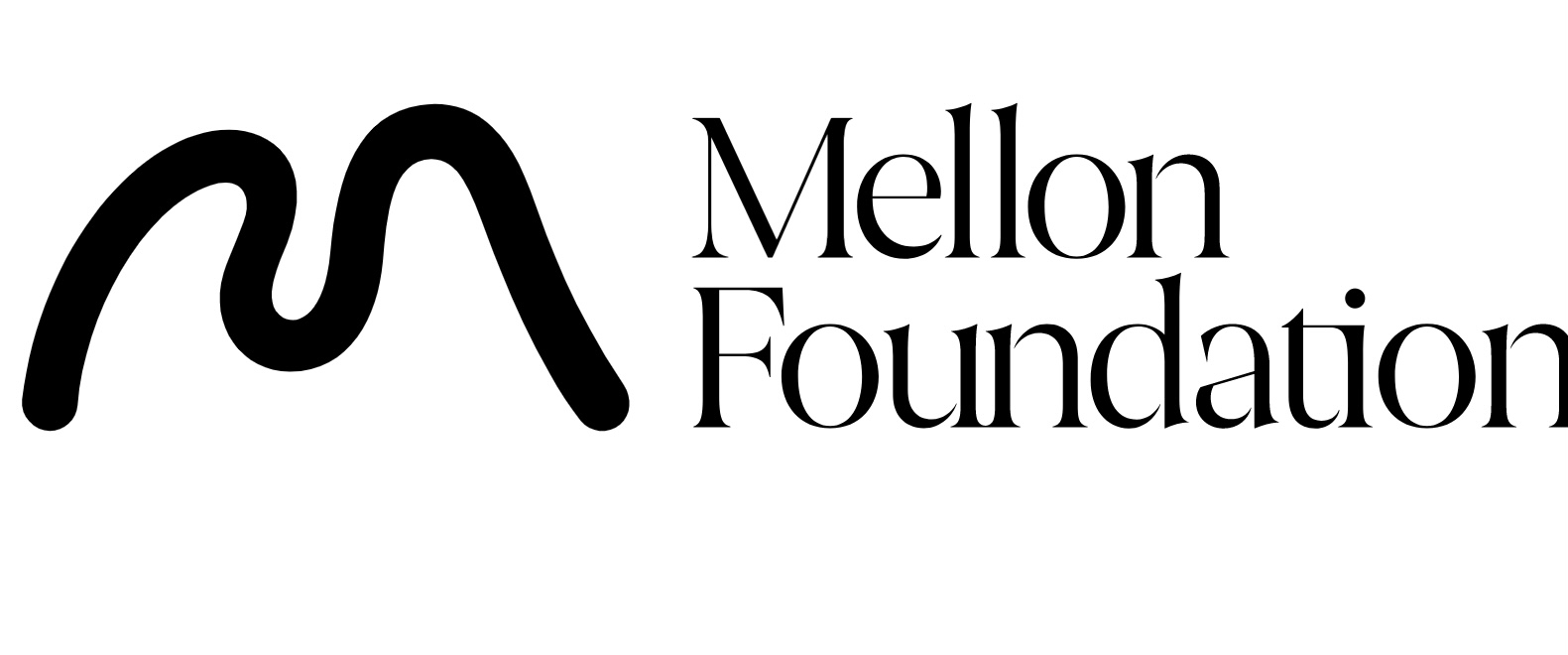
Mellon Fellowship Program for displaced scholars
Institution: Mellon Foundation and Columbia University
Closing date: 2 July 2022
Languages of the call: English & Arabic
Overview:
In partnership with the Andrew W. Mellon Foundation, Columbia Global Centers | Amman has established the Mellon Fellowship Program to support emerging displaced scholars working in the humanities and humanistic social sciences. The goal of the program is to create opportunities for scholars to reintegrate into academia and resume their academic pursuits.
Eligible candidates are scholars in the humanities and humanistic social sciences who have been forcibly uprooted from their home countries and respective academic institutions. They could be graduate students who have had their education disrupted or post-doctoral scholars in the early stages of their careers. Creative writers, artists, and curators may also apply.
Fellows will be expected to participate in scholarly presentations, workshops, and roundtable discussions. They will be connected to a global network of academics and scholars in Jordan, New York (from Columbia University), and beyond.
For any queries, write directly to Abdelazim Sultan: as6660@columbia.edu

XI Call for applications for Philipp Schwartz Initiative grants in Germany
Institution: Philipp Schwartz Initiative (PSI)
Closing date: 4 March 2022
Languages of the call: English/German
Overview:
The Philipp Schwartz Initiative (PSI) closes its tenth call for applications for grants on 4 March 2022. The Initiative offers funding to universities and research institutions in Germany so that they may host researchers at risk. PSI funding consists of two components: a) Funding for a research fellowship or work contract with a maximum duration of up to 24 months, b) Funding for the host institution (20,000 euros per funded person).
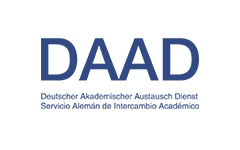
New Hilde Domin DAAD scholarship programme for at-risk students
Institution: German Academic Exchange Service (DAAD)
The following time periods for applications: 16 March to 29 April 2022
Languages of the call: English/German
Overview:
The German Academic Exchange Service (DAAD) has launched a new scholarship programme called “Hilde Domin Programme” with funding from the Federal Foreign Office (AA). The programme supports students and doctoral students from all over the world who are at risk or under threat, or who are denied both the right to education and other fundamental rights in their home country.
Nominations can be submitted at any time but there are two selections peirods per year. The application periods are based on the start of the academic semesters in Germany.
The following time periods apply for applications:
Planned start of studies in the summer semester 2023: 16 March to 29 April 2022
Planned start of studies in the winter semester 2023/24: 16 September to 28 October 2022
An earlier start of studies requires a corresponding admission to a German higher education institution.
The aim of this scholarship programme is to offer these students and doctoral candidates the opportunity to start or complete a study or research degree at a higher education institution in Germany in a safe environment, in order to contribute to meaningful political, economic and social development in their home countries.
Students and doctoral candidates accepted into the programme will receive a grant sufficient to cover the necessary costs of their study and/or research stay. The duration of funding is usually
- up to 48 months for a Bachelor’s degree
- up to 24 months for a Master’s degree
- up to 48 months for a PhD
Students and doctoral candidates from all disciplines are eligible to apply. Those who wish to apply for the programme cannot apply individually, but are nominated by the management (presidiums/rectorates) of an institution that is a legal entity domiciled in Germany

Tenth call for applications for Philipp Schwartz Initiative grants in Germany
Institution: Philipp Schwartz Initiative (PSI)
Closing date: 11 September 2021
Languages of the call: English/German
Overview:
The Philipp Schwartz Initiative (PSI) closes its tenth call for applications for grants on 10 September 2021. The Initiative offers funding to universities and research institutions in Germany so that they may host researchers at risk. PSI funding consists of two components: a) Funding for a research fellowship or work contract with a maximum duration of up to 24 months, b) Funding for the host institution (20,000 euros per funded person).
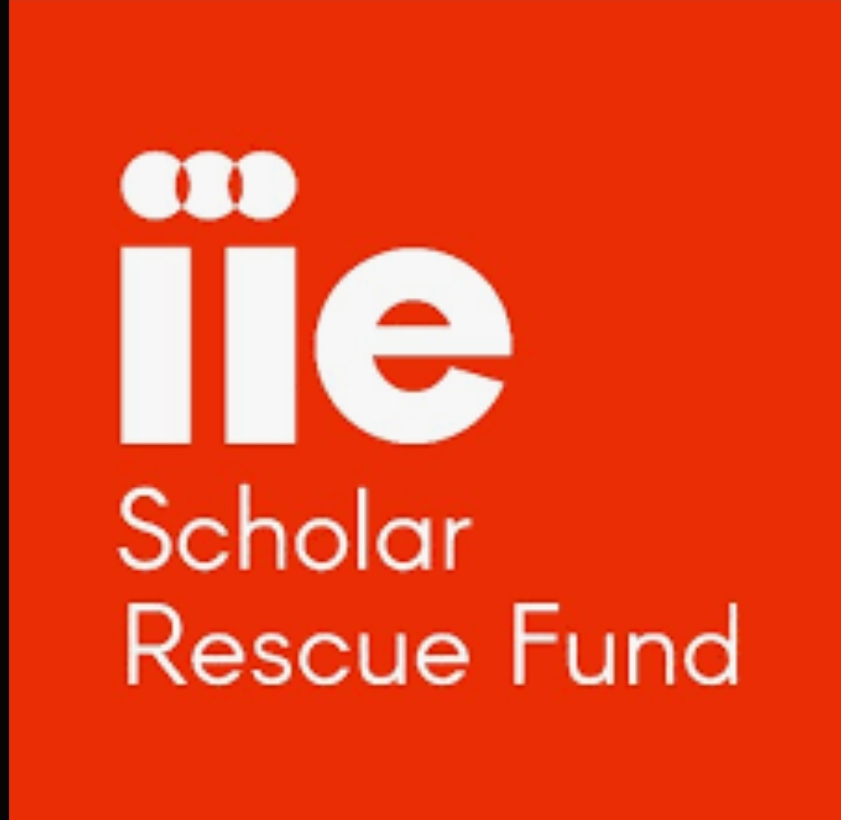
Research stay grants for researchers under threat
Institution: Institute of International Education’s Scholar Rescue Fund (IIE-SRF)
Closing date: Permanent call for applications
Call languages: English
Overview:
The Institute of International Education‘s Scholar Rescue Fund (IIE-SRF) in the UK organises and funds scholarships for at-risk and displaced academics at partnering higher education institutions around the world. Since 2002, IIE-SRF has supported 901 academics from 60 countries in partnership with 428 host institutions in 50 countries. Scholarship applicants can apply directly or be nominated by a third party.
The fellowships allow scholars to pursue their academic work with confidence and to continue to share their knowledge with students, colleagues and the scientific community. If conditions in the scholars’ home countries improve, they can return after their fellowships.
